Ukraine: What are Himars missiles and are they changing the war?
- Published
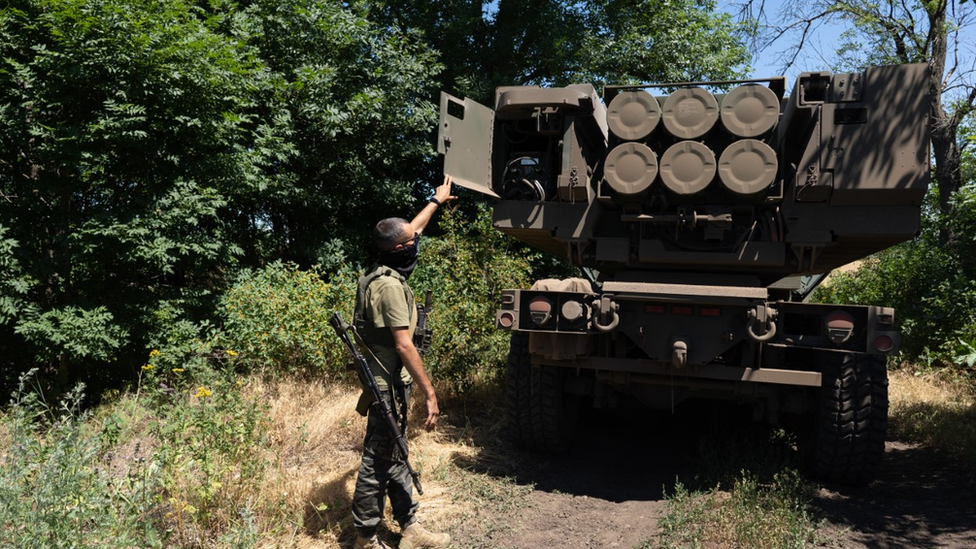
A Himars launcher under tree cover in eastern Ukraine
The Ukrainian president Volodymyr Zelensky says that Himars missiles are changing the course of the war against Russia.
The US-made system has been used to hit dozens of Russian targets such as command posts and ammunition depots.
It has also been used to target bridges, including those on the approach to Russian-occupied Kherson, which Ukraine is trying to reclaim.
What is Himars?
Himars - the M142 High Mobility Artillery Rocket System - is a missile launcher mounted on a five-tonne truck which can fire six guided missiles, external in quick succession.
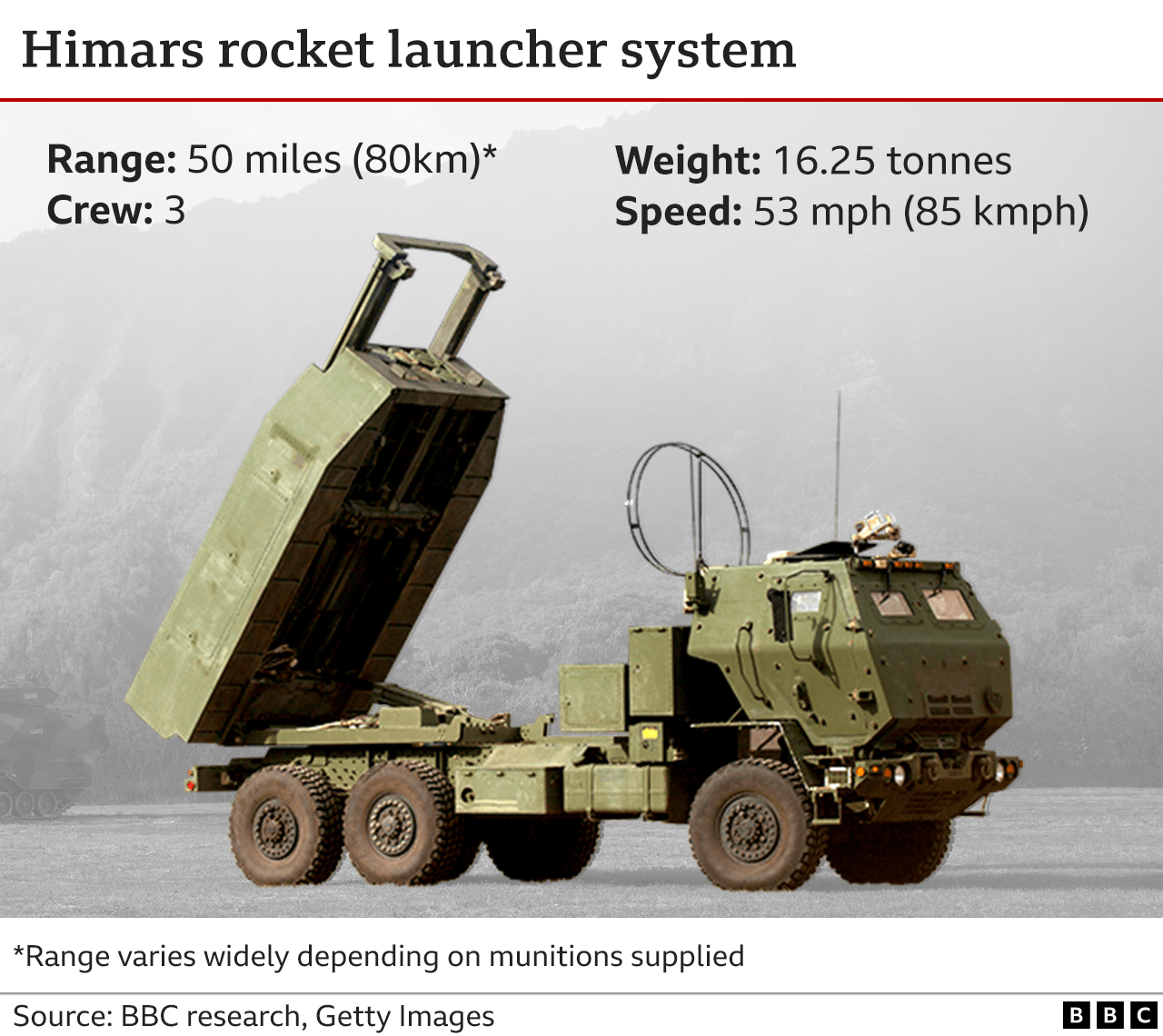
The missiles supplied to Ukraine have a range of up to 50 miles (80 km), which is over twice the range of the howitzer guns which the US has previously given to Ukraine.
Himars can also fire a single Army Tactical Missile System missile, which has a range of 186 miles (300 km). However, the US isn't supplying Ukraine with these.
The 50-mile range is roughly similar to that of Russian Smerch missiles, but Himars fires GPS-guided missiles which can be more accurately targeted.
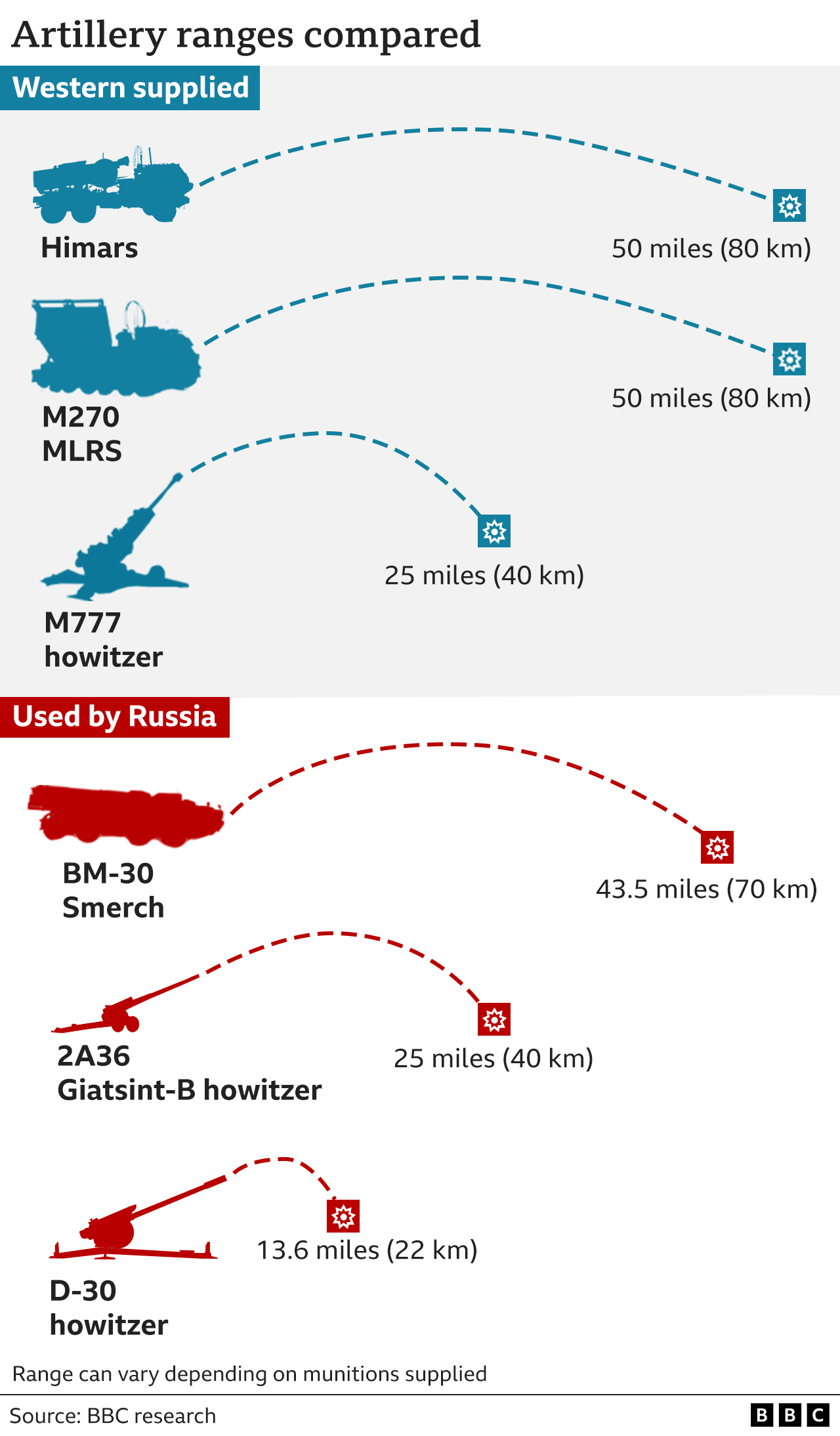
How has Ukraine used Himars?
Himars began being used in Ukraine at the end of June or the start of July, according to Phillips O'Brien, professor of strategic studies at St Andrews University.
He says the system was first deployed against fixed targets and command centres, rather than forces on the move:
"It was used up and down the front in eastern Ukraine, striking at ammunition depots some 30 miles behind the Russian lines."
However, he says, Ukraine may now be starting to use Himars against concentrations of Russian troops in barracks and command posts.
Ukraine claims a missile attack in Lysychansk, Luhansk, external killed up to 100 troops, and that a strike on the headquarters of the Wagner mercenary group in Popasna in Luhansk may have killed 100 of its members.
Both strikes are likely to have involved Himars, according to Prof O'Brien.
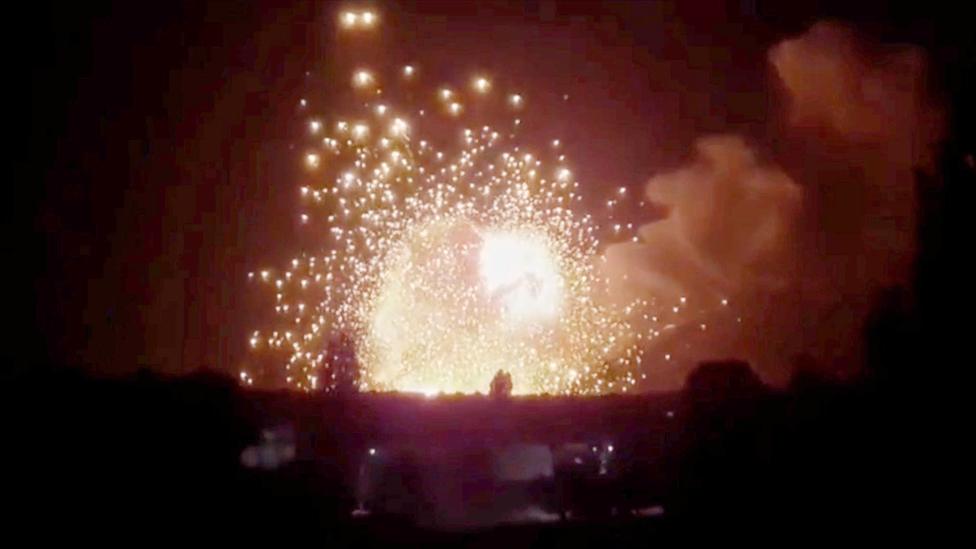
Ukrainian forces say they used Himars missiles to destroy a Russian ammunition depot at Nova Kakhovka in southern Ukraine in July.
The US is said to have supplied Ukraine with 16 Himars systems, external as part of its $9bn (£7,47bn) security assistance package.
The UK has also provided a missile-launch system called the M270, which is similar to Himars and fires the same missiles. Three of these have been delivered and three more are on their way.
In mid-July, Ukrainian forces started using Himars to cut off Russia's access to the city of Kherson in southern Ukraine, which it currently occupies.
Himars missiles damaged bridges across the Dnipro river which link the the city to Russian-annexed Crimea.
"The Russians have been pouring troops into Kherson to try and defend it," says Prof O'Brien.
"The Himars attacks have created a problem in resupplying them."

Himars missiles have closed the bridges from the Crimea which Russia relies on to resupply Kherson
Can Himars win the war for Ukraine?
President Zelensky insists the system is vital to his country's efforts, writing on Facebook, external that "Himars and other precision weapons are turning the course of war in our favor".
By mid-August, Ukraine's forces had destroyed more than 100 high-value Russian targets with Himars, according to the US army.
"Himars helps cut supply lines, and that makes it a very important weapon," says Prof O'Brien.
"It has given the Ukrainian forces a new strategy - of degrading the Russian supplies until they cannot hold, of depleting Russian firepower, and of wearing its army down by attrition.
However, Dr Marina Miron, warfare expert at Kings College London, believes its impact may have been exaggerated.
"Himars is very accurate when it is used against fixed targets, when you have the exact co-ordinates," she says.
"But it is not so effective against moving targets such as troops, so it cannot push back an advance.
"I would say that Himars caught the Russians by surprise, but it doesn't change the balance of power."
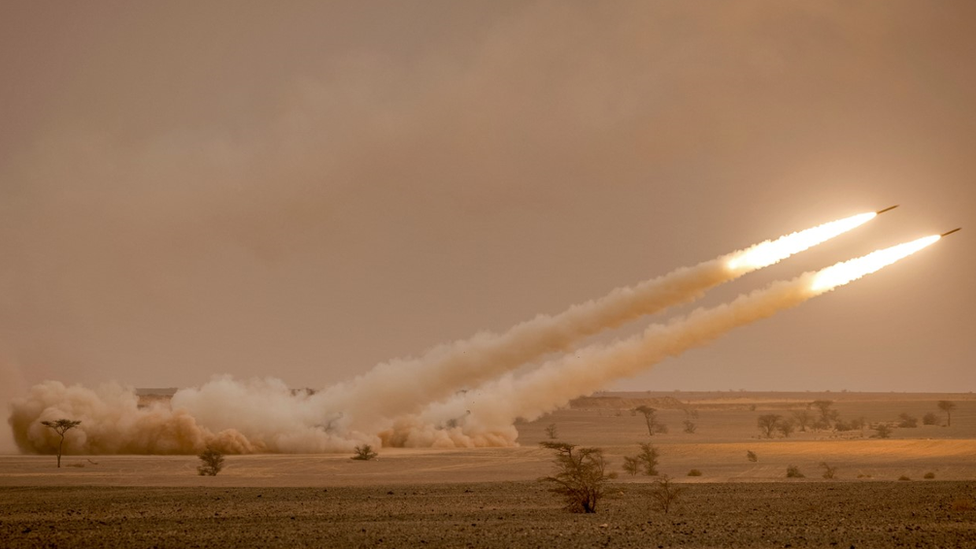
Himars missiles can hit targets deep behind enemy lines
Ukrainian defence secretary Oleksii Reznikov says Ukraine needs 50 more Himars systems to stop Russian forces advancing, and 100 more to launch a successful counter-offensive, external.
However, according to Prof O'Brien, the supply of the missiles used by the system is more important.
"Having 16 or so Himars launchers will be fine," he says, "as long as there is a tonne of ammunition to go with them. But the missile manufacturers are under a lot of pressure to keep up supplies."
How is Russia fighting back?
"Russia is now focusing on destroying Himars launchers and missiles while they are being delivered," says Dr Miron.
Its forces have repeatedly claimed to have destroyed a number of launchers, external and as many as 100 missiles, external, but have provided no proof.
"The Russians don't seem to be very good at combatting Himars by destroying them," says Prof O'Brien.
"Because they cannot fly aircraft safely over battle areas, they haven't been able to spot them from the air.
"And it is hard to hit back at a Himars once it has fired on you, because it can move almost immediately."